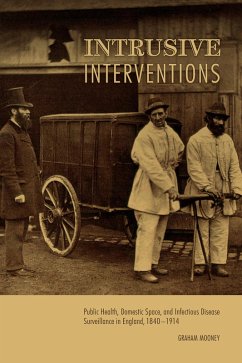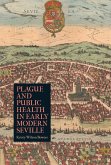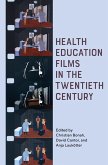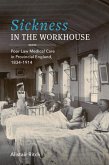Examines the advent, during the mid-nineteenth century in Britain, of techniques of infectious disease surveillance, now one of the most powerful sets of tools in modern public health.
Intrusive Interventions is a history and critical study of public health in the Victorian and Edwardian period. Drawing on an array of archival sources from across provincial England and London, it investigates the emergence and consolidation of a set of government policies that came to be known as infectious disease surveillance, including compulsory infectious disease notification, domestic quarantine, mandatory removal to a hospital, contact tracing, and the disinfection of homes and belongings. Although these were a set of spatialized practices implemented in diverse settings such as hospitals, schools, and disinfecting stations, their effect was to retrain the gaze of public health onto domestic space and in the process both disrupt and reinforce the centrality of the family and domesticity in Victorian and Edwardian culture. Examining political ideologies of freedom and individuality as well associal policy, medical theory, laboratory research, material culture, and public health practice, author Graham Mooney argues that infectious disease surveillance reconfigured late nineteenth-century hygienic norms and forms of citizenship. Public health practice had to be continually reshaped in order to negate the political fallout of a tendency toward coercion and unwanted interference -- debates that, as the author of this important study points out,continue to resonate today.
Graham Mooney is Assistant Professor at the Institute of the History of Medicine, Johns Hopkins University.
Intrusive Interventions is a history and critical study of public health in the Victorian and Edwardian period. Drawing on an array of archival sources from across provincial England and London, it investigates the emergence and consolidation of a set of government policies that came to be known as infectious disease surveillance, including compulsory infectious disease notification, domestic quarantine, mandatory removal to a hospital, contact tracing, and the disinfection of homes and belongings. Although these were a set of spatialized practices implemented in diverse settings such as hospitals, schools, and disinfecting stations, their effect was to retrain the gaze of public health onto domestic space and in the process both disrupt and reinforce the centrality of the family and domesticity in Victorian and Edwardian culture. Examining political ideologies of freedom and individuality as well associal policy, medical theory, laboratory research, material culture, and public health practice, author Graham Mooney argues that infectious disease surveillance reconfigured late nineteenth-century hygienic norms and forms of citizenship. Public health practice had to be continually reshaped in order to negate the political fallout of a tendency toward coercion and unwanted interference -- debates that, as the author of this important study points out,continue to resonate today.
Graham Mooney is Assistant Professor at the Institute of the History of Medicine, Johns Hopkins University.
Dieser Download kann aus rechtlichen Gründen nur mit Rechnungsadresse in A, D ausgeliefert werden.









